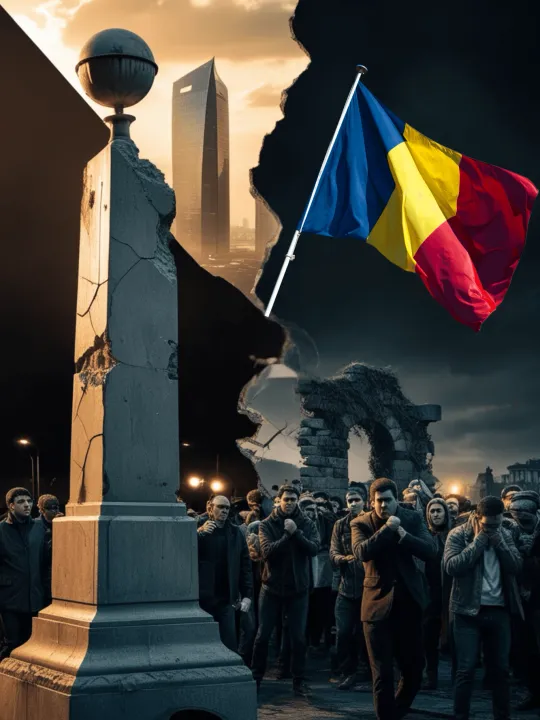Subscribe
December 22, 1989: 35 Years Since the Romanian Revolution – The Same Divisions and a Missing National Project
By:
Radu Timis
On
24/12/2024Reading time:
3 min
Summary:
DIVISION – Thirty-five years after the 1989 Revolution, Romania remains polarized and trapped in political stagnation. Manipulated by secret services and fractured leadership, the nation struggles to define a coherent path forward. The urgent need for judicial reform, transparency, and a unified national project is more critical than ever.

Thirty-five years after the 1989 Revolution, Romania finds itself grappling with challenges reminiscent of those at the end of the communist regime. Though a beacon of hope at the time, the revolution was followed by political instability and social manipulation. Analyzing recent reports, it becomes evident that the country continues to face obstacles and lacks transparency in its justice system—particularly in high-profile cases involving figures such as Ion Iliescu and Gelu Voican Voiculescu. Meanwhile, secret services have retained a critical role in post-communist Romanian politics, with the state becoming a battleground for political forces incapable of crafting a coherent national strategy.
Persistent Divisions in Society
Today, Romanian society is increasingly polarized, with political extremes manipulating public opinion under the guise of sovereignty and national interest. This lack of unity is mirrored in recent political crises, including the annulment of presidential elections—an act interpreted by some as a veiled coup, exacerbating internal divisions. Amid this stagnation and uncertainty, the pressing question remains: What can be done to escape this nightmare of political and social paralysis?
Key Question: What Must Be Done?
To break free from this cycle of stagnation and division, several critical steps are necessary:
Judicial Reform: Ensure an independent and efficient judiciary capable of resolving long-pending cases and restoring public trust.
Transparency in State Institutions: Limit undue influence from secret services and foster open governance.
Restoring the Democratic Process: Organize free and fair elections without interference that undermines the people's will.
Combating Extremism: Promote dialogue and tolerance to reduce polarization and prevent radicalization.
Developing a National Project: Engage all social and political actors to define a shared vision for Romania’s future.
A Path Forward
Addressing these challenges is the only way for Romania to transition into a consolidated democracy and a cohesive society. The country must move beyond rhetoric and division, committing to tangible reforms that pave the way for a sustainable and united future.
Stay Updated. Stay Relevant.
Get AI Trends, Business Insights, and More Straight to Your Inbox.
